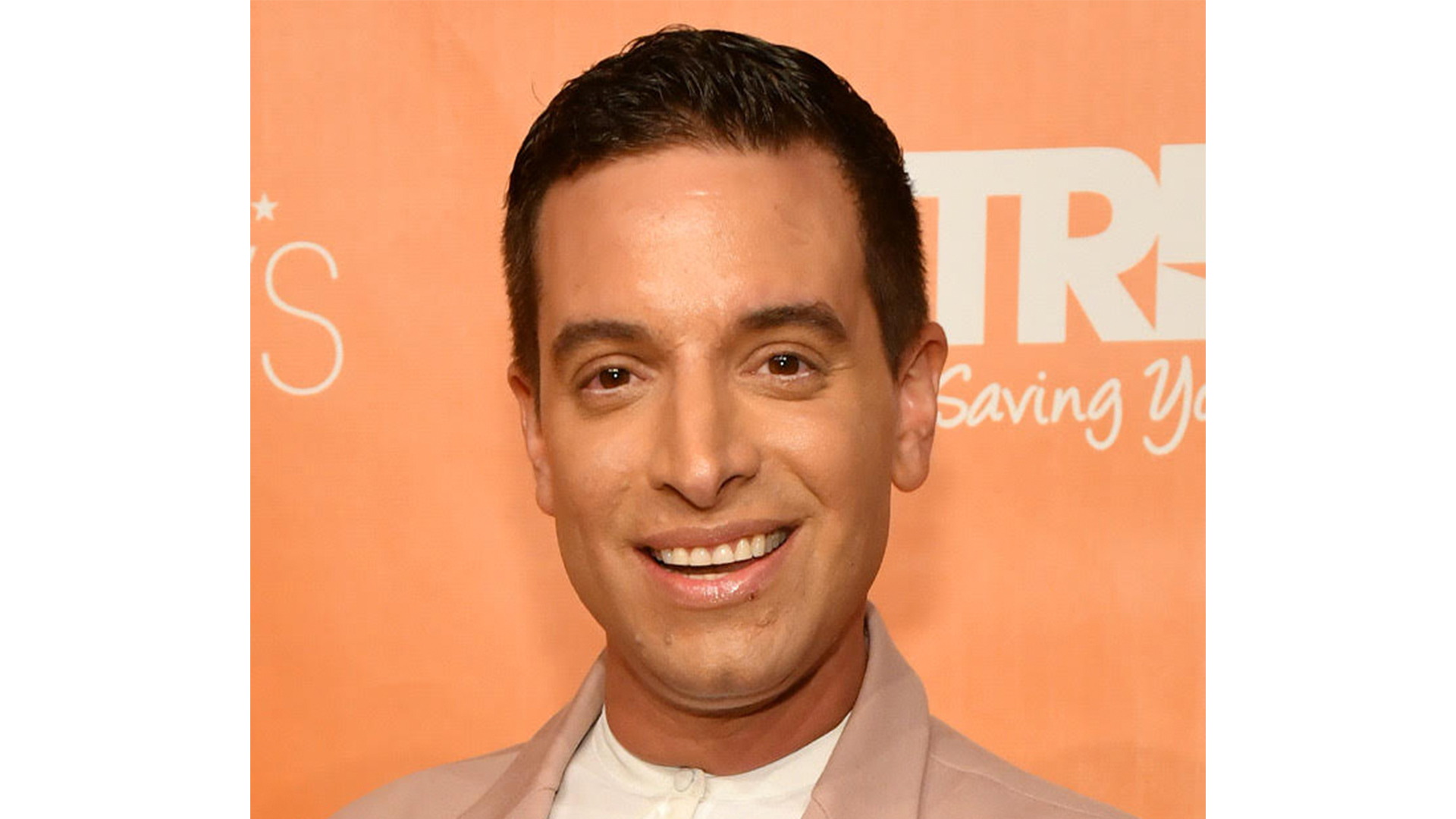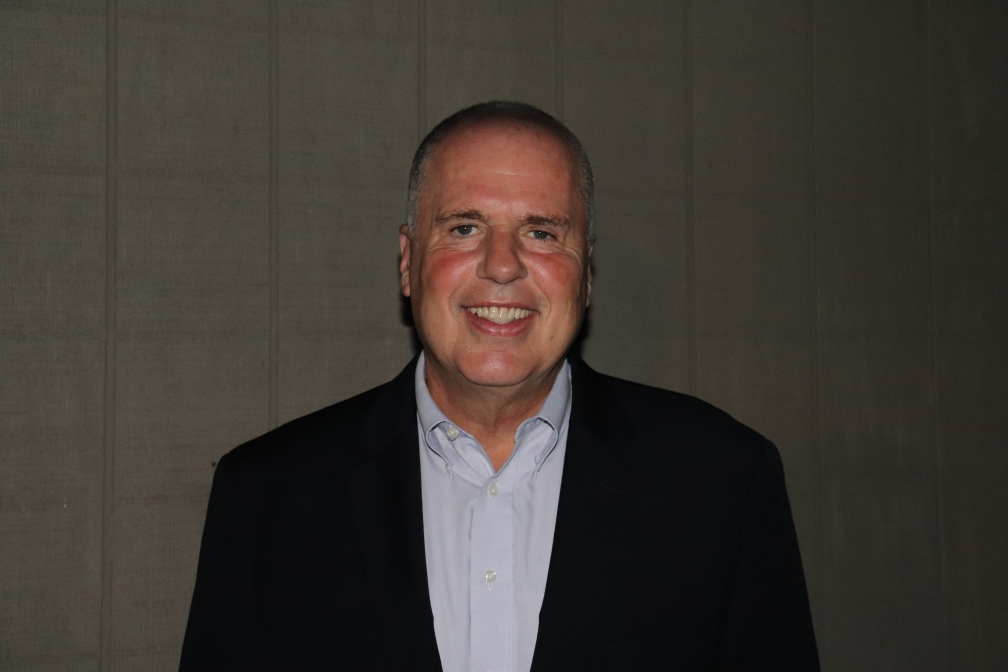Fall TV 2020: The Riches Are in the Niches
Damian Pelliccione, CEO and co-founder of Revry, previews his discussion at the upcoming session The Niche Effect at the Streaming TV Summit virtual event at Fall TV 2020.

The smarter way to stay on top of the streaming and OTT industry. Sign up below.
You are now subscribed
Your newsletter sign-up was successful
Flash back to the not so distant past when not a single app or video came up following an internet search on LGBTQ and a light bulb idea came up for Damian Pelliccione. He wanted to create a streaming network featuring queer content and championing diversity and inclusion in media and the entertainment.
Founded in 2016 by Pelliccione, Alia J. Daniels, Christopher Rodriguez, Wadooah Wali and LaShawn McGhee, this mixture behind the scenes at Revry (Revry.tv), according to Pelliccione, is “50 percent women of color, 75 percent people of color, and 75 percent LGBTQ.”
“We are also immigrant, army veteran, people of color, Latinx, African American female and LBTQ founded,” he noted. “And we have a mission, a purpose and a belief that representation in media can and does save lives. Representation starts from leadership, and that’s why we formed the company and the structure the way it is.”
The Revry.tv website features a curated selection of TV series, films, podcasts, news, music, and videos under a free (with commercials) or paid subscription model. It also offers original content including the series Before I Got Famous, America in Transition, BIFL and Barbelle. And the content is available online and via services including iOS, Apple TV, Amazon Fire, Android TV, Roku, and TiVo.
We spoke to Pelliccione, who will be among the panelists on "The Niche Effect" during the Streaming TV Summit on Oct. 1, about Revry today, what the future holds, and how the platform works to spark positive and necessary change in the ongoing quest for diversity in media.
Fall TV 2020: Comscore CEO Bill Livek on Impressions-Based Future
The Streaming TV Summit, which runs from Sept. 29 to Oct. 2, is part of Future plc's virtual Fall TV 2020 event.
The smarter way to stay on top of the streaming and OTT industry. Sign up below.
Q: What are you looking forward to most out of this conversation? Where are you expecting the conversation to go, and what would you hope audiences will glean from it?
Damian Pelliccione: We define ourselves as not just a media company, but as an impact-driven startup. We help shape culture and help shape change, specifically social change in the world. Our product does something for a group of people that is either under-represented, under-heard, or does not have a place at the “table.” Yet, the available data points to a segment that is extremely valuable. The disposable income of the LGBTQ community in the United States is over $965 billion a year and $5 trillion globally. That is not a small market, and there is no TV network or streaming service that is fully targeting those dollars, nor anyone who is working with advertisers, specifically on the video level that we do. Our mission is to spark change and capitalize on the value we bring.
Q: Is your model mainly subscription based like some of the primary streamers (Netflix, Amazon Prime and Hulu, for example)?
D.P.: I don’t think subscription is the future. I think we are in a period of subscription fatigue and we are seeing these majors cannibalizing each other trying to fight for that subscription dollar. Unless you have a very convincing value proposition as to why I am going to subscribe, I don’t believe that content should be behind a paywall. We started as a subscription model, but we have a “tribrid” approach: live free television, free ad-supported TV, and fast channels first in many different environments in as many different formats as we can garner. Then we have AVOD and we offer [a] subscription, which is for the person who wants to support the community in an underserved market and wants to have access to all the content all of the time commercial free.
At the end of the day, we now control the largest amount of video ad inventory for the LGBTQ segment in the world. We sell it direct, we sell it programmatically, and we even give it away to MGOs because we created this platform to impact change in our community and shape Queer culture. We understand that television is still driven by advertising and consumer purchasing. It is not subscription.
Q: How do you find your niche in the marketplace opposite these major streaming services?
D.P: I believe that authenticity drives innovation and it also drives marketplaces. We describe ourselves as “#radically inclusive and #unapologetically queer.” We are not the first at doing this, but we think we are the best at doing this, and that is what sets us apart. We all have personal insights into this community.
Q: How do you come up with the content for Revry?
D.P.: We are a startup, so we license a lot of the content of course. But we scoured everywhere: YouTube, film festivals, relationships and referrals, markets, distributors, studios…you name it. We are getting content from a multitude of sources. And we are increasing our original production.
When we did our research and we looked at the LGBTQ libraries in the mainstream, such as Amazon, Hulu and Netflix, we found the same titles…Brokeback Mountain, Boys Don’t Cry, The Golden Girls, etc. The things that are the obvious legacy titles are what we try to shy away from, which we think really creates a different value proposition for the consumer to want to engage with our apps and our channel.
Q: How has COVID-19 impacted your business model?
D.P.: I am sure you are hearing across the board how COVID has accelerated usage, subscription and otherwise, but more on the free side. Anyone who is in the business of entertainment post-COVID is thriving, at least in terms of increased audience interest. Historically, the first thing people stop spending on during any crisis is going out for entertainment so they spend more time at home in front of their television. I am not happy about the pandemic and the impact it has had on the world; none of us are. But I do find it ironic that the thesis of streaming and all the traditional models are benefiting from it.
Q: Can you talk about what initiatives lie ahead?
D.P.: We are coming up [with] five new channels before the end of the year, all different interests or genre based that are within our community. Here we are shaping not just a single channel like Logo is, but proving the viability [of] why there might be a marketplace for maybe a LGBTQ news network or music network, or so many other things.
I think the next big phase of our business is going to happen in the next couple of years where you will see us pushing more original content, co-productions with other digital studios and networks. Five years later and we have really only just begun.
Marc Berman is editor-in-chief for media-centric The Programming Insider (programminginsider.com), which pioneered the email newsletter format at its inception in 1999. Marc has written for a wide range of publications including Broadcasting + Cable, Next TV, Forbes, Newspro, Campaign US, The Hollywood Reporter and Variety. Known as “Mr. Television” at Mediaweek (now Adweek), Marc has appeared on camera on Entertainment Tonight, Extra, Inside Edition and CNN and MSNBC, among other series and outlets. He is a member of The Television Critics Association and The Broadcast Journalists Television Association. And Marc put his TV historian hat on as author of desk calendar Today in TV History.

